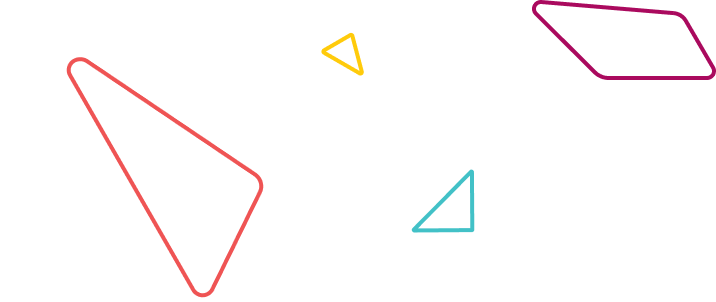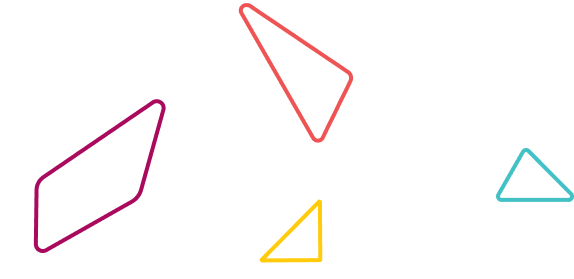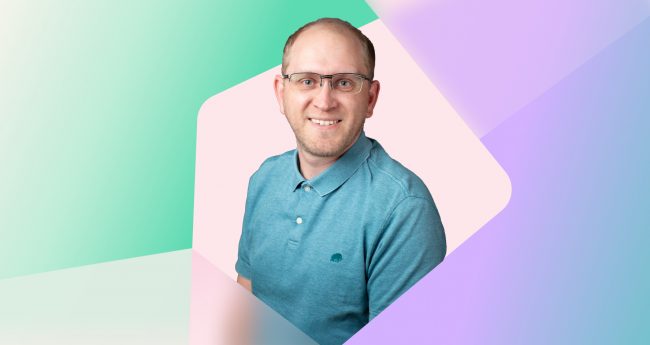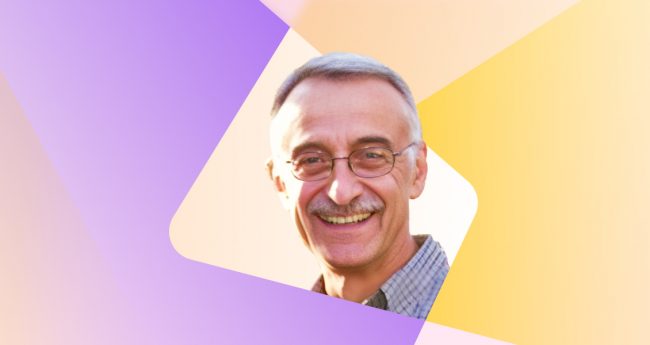Navigating department dynamics
Course coordinators who want their entire department to adopt a type of educational technology can often be met with resistance from their colleagues. More seasoned instructors might not be eager to stray from their modus operandi while newer faculty members may be reluctant to adopt a new piece of technology when they adjust to new institutions. Convincing faculty members of the merits of a particular piece of technology is essential. Finding a tool to make group adoptions more seamless makes the job of winning over colleagues much easier.
Anthony Durante is an Associate Professor of Chemistry at Bronx Community College in New York City. In addition to his own teaching position, Anthony serves as a course coordinator for the department’s many courses. He knows all too well the struggle of getting an entire faculty on board to use an online platform. Having tried to incorporate other technologies into his department, he found the pitch much easier when he decided to adopt Aktiv Chemistry. For starters, Aktiv Chemistry’s intuitive set up allows users to avoid the onboarding headaches caused by other learning management systems. “[Aktiv Chemistry] was designed by chemists. The questions being asked were designed by chemists. The language [being] used was very understandable to our students…the only thing we had to show [faculty] was how to set it up and work with it.”

Setting up courses and sections
An easy set up wasn’t all Anthony was using as a selling point. Along with the other chemistry course coordinator at BCC, Anthony created courses for his faculty. By doing this, he gave them a template to use in their own classes. Individual instructors could decide to modify the assignments and quizzes that had been set up for them, or they could choose to administer these assignments to their students as provided. “We felt the best way to do it was to populate their courses. Then, they see what they have to do and you can actually give them a bit of a training program by setting up shell courses – a blank area where we could easily form a course and transfer it to another professor. We had some online sessions with other professors and we would get them on board with how to make their own questions.”
“We were delighted to find out that there weren’t many bells and whistles or tricks to set it up. You selected the questions you liked, and you would simply put them into the question bank for that particular assignment.”
7,000 problems and growing
While creating the assignments for his courses, Anthony was able to choose from a wide variety of questions in Aktiv Chemistry’s bank. “What I like most about using Aktiv Chemistry is the fact that I go to a question bank with several thousand questions and I can just pick and choose a question that meets the needs of the students that is parallel to the topic we are teaching.”¹ And when an instructor has to create as many assignments as Anthony needs, a platform that saves time is invaluable. “We were delighted to find out that there weren’t many bells and whistles or tricks to set it up. You selected the questions you liked, and you would simply put them into the question bank for that particular assignment. It took us all of 20 minutes to set up a couple of quizzes.”
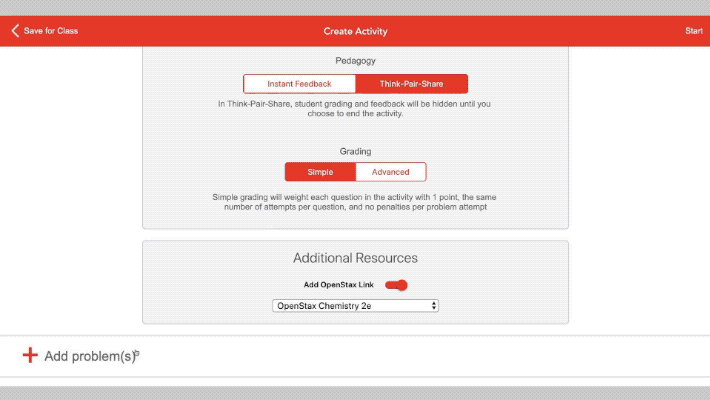
Aktiv Chemistry’s instructor dashboard and problem bank make it simple to create in-class activities, homework assignments, quizzes, and more from a library of over 7,000 questions
Student success on-the-go
Saving time by not having to decipher students’ handwriting on assignments was also a major factor in Anthony’s decision to adopt Aktiv Chemistry. However, his most effective pitch to his fellow faculty members was how Aktiv Chemistry could impact the students’ learning experiences. “I have in mind one thing – student success. That’s what I’m there for. I want them to know that I’m on their side.” Because Aktiv Chemistry is device agnostic, students are able to use the platform entirely on their phones if they so choose. This is an important feature for a student body made up of financial aid recipients who have jobs and families to attend to outside of school. “They need an outlet to be able to study while they’re on the subway. It’s a portable device where they can do work in areas where they ordinarily wouldn’t do it. They don’t have to devote a special place in their home. I don’t know of any other platforms that use the cell phone like this.”
“They need an outlet to be able to study while they’re on the subway. It’s a portable device where they can do work in areas where they ordinarily wouldn’t do it. They don’t have to devote a special place in their home. I don’t know of any other platforms that use the cell phone like this.”
With a department of mostly tenured faculty, Anthony’s task of convincing them of Aktiv Chemistry’s worth might have been a hard sell were it not for the platform’s ease of use. “It’s an easy sell. The easiest part about it is the ease of initiation. I think the support [Aktiv Chemistry] gives is outstanding. Somebody has a problem, just pick up the phone. We’ve had some wonderful service. Put it all together and compare it with some of the other platforms and you find out that [Aktiv Chemistry is] head and shoulders above them. The comparison doesn’t exist.”
Don’t just take Anthony’s word for it!
Schedule a demo with one of our Learning Specialists and experience Aktiv Chemistry’s ease-of-use for yourself.

